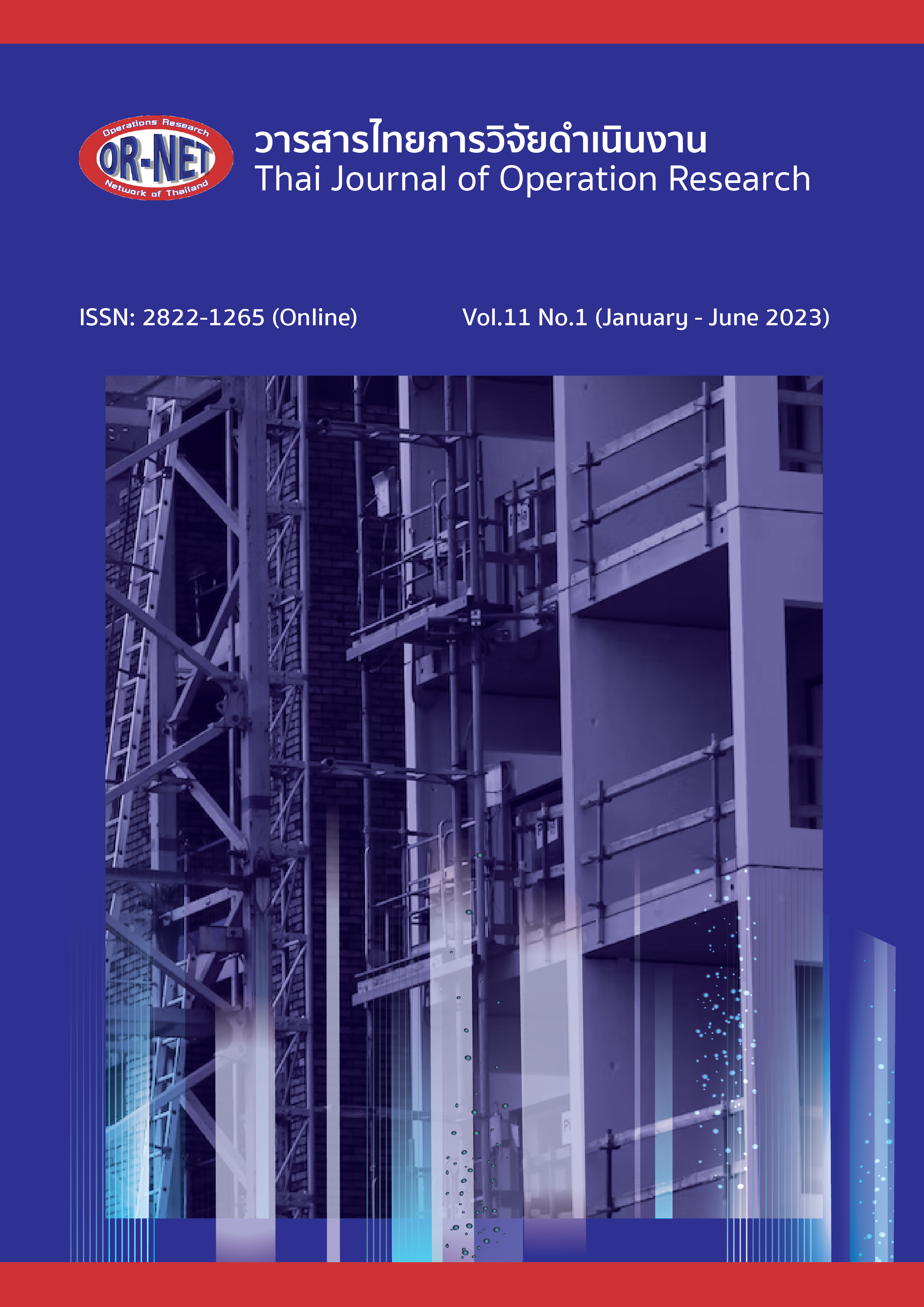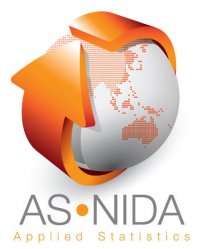Optimization of a Sustainable Supply Chain Planning System for Cultivated Banana Production with a Mixed-integer Linear Programming Approach
Keywords:
cultivated banana, production planning, supply chain management, mixed-integer linear programmingAbstract
Cultivated bananas are one of the most common types of bananas found in all regions of Thailand. They are widely consumed because cultivated bananas contain helpful nutrients that energize the body. Moreover, they can be processed into a variety of other products. But from the study of the cultivation of bananas at present, it is found that the farmers still face the problems of lack of effective production planning. The problems are found in cultivating, harvesting, and delivering to customers. This causes the farmers to produce poor quality banana yield, sell at a low price, and lose their income. To solve this problem, therefore, a mixed-integer linear programming model was developed for planning all activities in the supply chain, including soil quality improvement planning, banana shoot ordering, and setting the interval time of fertilization and harvesting. In order to meet consistency and maximum total profit surplus. The results showed that the proposed mixed-integer linear programming model could be used as a decision support tool with a 10.52% increase in profit compared to manual planning.
References
ธวัชชัย ศรีภักดี, กล้วยน้ำว้า สรรพคุณ และการปลูกกล้วยน้ำว้า, กรุงเทพมหานคร: อักษรโสภณ, 2557.
B. M. Beamon, “Supply chain design and analysis: models and methods,” International Journal of Production Economics., vol. 55, pp. 281–294, 1998.
S.S. Erenguc, N.C. Simpson and A.J. Vakharia, “Integrated production/ distribution planning in supply chains: An invited review,” European Journal of Operational Research., vol. 115, pp. 219–236, 1999.
N. K. Tsolakis, C. A. Keramydas, A. K. Toka, D. A. Aidonis and E. T. Lakovou, “Agi-food supply chain management: a comprehensive hierarchical decision-making framework and critical taxonomy,” Biosystems Engineering., vol. 120, no. 1, pp. 46–64, 2014.
O. Ahumad and J. R. Villalobos, “Application of planning models in the agri-food supply chain: a review,” European Journal of Operational Research., vol. 195, no. 1, pp. 1–20, 2009.
J. Mula, D. Peodro, M. Diaz-Madronero and E. Vicens, “Mathematical programming models for supply chain production and transport planning,” European Journal of Operational Research., vol. 204, pp. 377–390, 2010.
G. O. Huang, J. S. K. Lau and K. L. Mak, “The impacts of sharing production information on supply chain dynamics: a review of the literature,” International Journal of Production Research., vol. 41, pp. 1483–1517, 2003.
Y. Srimanee and J. K. Routray, “The fruit and vegetable marketing chains in Thailand: policy impacts and implications,” International Journal of Retail & Distribution Management., vol.40, pp. 656–675, 2012.
C. Limpianchob, “A mixed integer linear programming model for optimal production planning in tangerine supply chain,” Kasetsart Journal (Nat.Sci.)., vol.49, pp. 1001–1011, 2015.
C. Limpianchob, “Integrated of harvesting and production planning in aromatic coconut supply chain using mixed-integer linear programming,” International Journal of Operational Research., vol.30, No.3, pp. 360–374, 2017.
Y. Kazancoglu, D. O. Yesim and M. Ozbiltekin, “Minimizing losses in milk supply chain with sustainability: an example from emerging economy,” Resources, Conservation and Recycling., vol. 139, no. 3, pp. 270–279, 2018.
W. E. Soto-Silva, M. Gonzalez-Araya, M. A. Oliva-Fernandez and L.M. Pla-Aragones, “Optimizing fresh food logistics for processing: application for large Chilean apple supply chain,” Computers and Electronics in Agriculture., vol. 136, no. 1, pp. 42–57, 2017.
D. J. Sanjay and P. Marcus, “Harvest planning in the Brazilian sugar cane industry via mixed integer programming,” European Journal of Operational Research., vol. 230, no.2, pp. 374–384, 2013.
Y. Hu, Y. Liu, Z. Wang, J. Wen, J. Li and J. Lu, “A two-stage dynamics capacity planning approach for agricultural machinery maintenance service with demand uncertainty,” Biosystems Engineering., vol. 190, pp. 201–217. 2020.
B. A. Yousefi, M. A. Tavakkoli, A. A. Bozorgi and S. Seifi, “Designing a reliable multi-objective queuing model of a petrochemical supply chain network under uncertainty: a case study,” Computers and Chemical Engineering., vol. 100, pp. 177–197, 2017.
B. Bilgen and I. Ozkarahan, “A mixed-integer linear programming model for bulk grain blending and shipping,” International Journal of Production Economics., vol. 107, pp. 555–571, 2007.
Downloads
Published
How to Cite
Issue
Section
License

This work is licensed under a Creative Commons Attribution-NonCommercial-NoDerivatives 4.0 International License.




